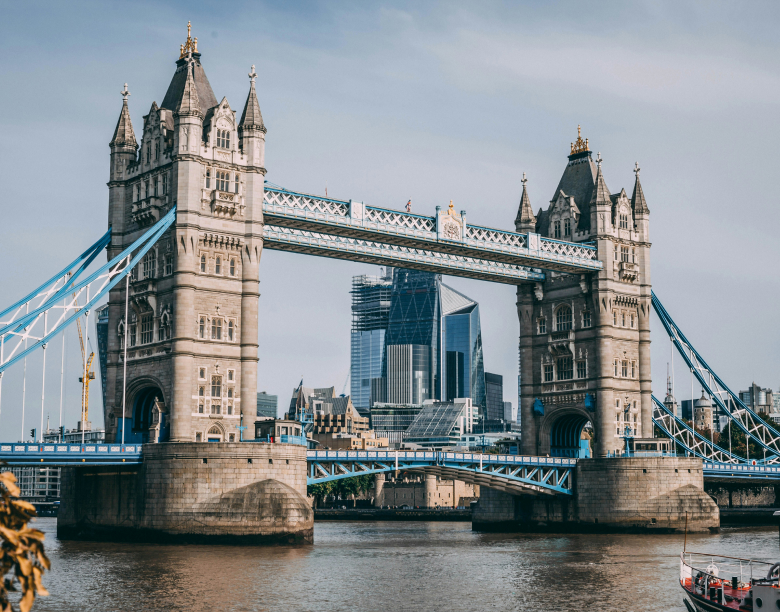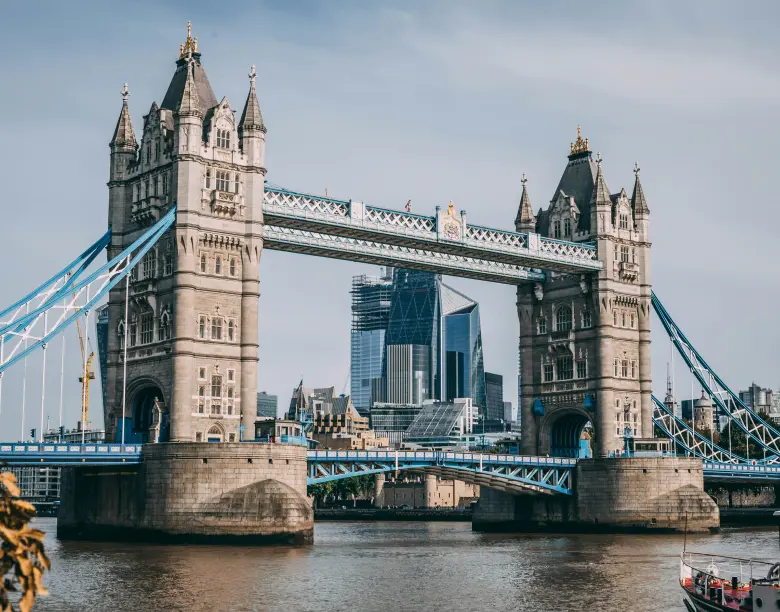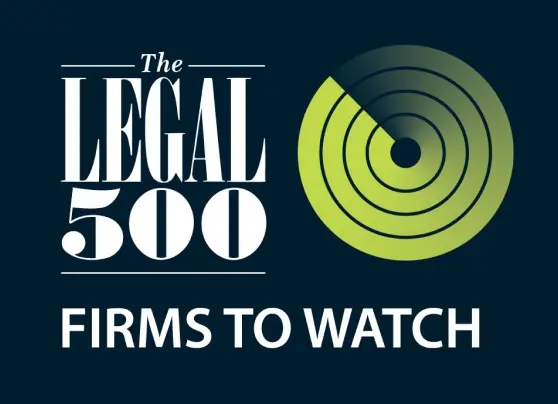Sponsor Licence Guidance
This article offers a comprehensive guide on the Sponsor Licence application regime, providing professional insights and valuable tips on how to navigate the intricacies of sponsorship and hiring skilled employees from overseas. Whether you’re a small business or a large corporation, this guide will equip you with the knowledge and tools needed to achieve your immigration goals efficiently and effectively.
What is a Sponsor Licence?
To employ workers from overseas, any UK employer must possess a Sponsor Licence or Sponsorship Licence (previously known as Tier 2 Sponsor Licence).
This licence enables UK-based businesses to grant Certificates of Sponsorship (CoS) and ‘sponsor’ overseas workers to fill genuine vacancies in their organisations on Skilled Worker visas.
Consequently, sponsor licences play a crucial role in enabling UK businesses to hire necessary staff from foreign countries. This is especially true in a number of industries including but not limited to the Healthcare, Hospitality, Construction, Telecommunications, IT and Media industries.
Obtaining a sponsor licence involves a rigorous application process, and maintaining the licence requires adherence to a strict compliance regime.
Why Do You Need a Sponsor Licence?
Any business that has identified a worker that requires permission to work in the UK or feels that the talent pool in the UK cannot meet their job requirements should apply for a Sponsor License. Having a sponsor licence allows you to recruit and hire skilled workers from outside the UK or overseas workers already in the UK, ensuring that you have access to a wider range of talent. Not only does this allow you to hire and retain key skilled workers but also demonstrate your commitment to providing equal opportunities and fostering diversity within your organisation.
Advantages of Having a Sponsor Licence
Obtaining a sponsor licence can significantly benefit UK organisations, particularly those seeking to recruit skilled talent from overseas. Let’s explore the key benefits of acquiring a sponsor licence:
Access to A Global Talent Pool
With a sponsor licence, your organisation can access and recruit from a global talent pool. This allows you to fill specific roles that may require unique skill sets, knowledge, or experience that isn’t readily available within the UK.
Stimulates Business Growth & Development
By hiring overseas talent, your organisation gains new perspectives and ideas, fostering innovation. This can stimulate business growth and development, allowing you to remain competitive in the ever-evolving global market.
Enhances Diversity
Sponsoring overseas employees can also contribute to a more diverse and inclusive workforce. Diversity encourages a richer range of ideas, experiences, and cultural perspectives, fostering a more dynamic and creative working environment.
Demonstrates Credibility and Compliance
A sponsor licence reflects on your organisation’s credibility and commitment to compliance with UK immigration laws.
Supports Economic Growth
By employing skilled workers from overseas, your organisation contributes to the overall economic growth of the UK. This helps to build and maintain a strong and thriving economy.
Obtaining a sponsor licence, therefore, offers numerous benefits, particularly for organisations aiming to attract and retain skilled overseas talent. It’s an investment that can open doors to a world of opportunities, innovation, and growth.
Definition of a ‘Skilled Worker’
A skilled worker must have a job offer from an organisation with a sponsor licence who has issued them a certificate of sponsorship to perform a role in Government approved role.
Unless the role is within a shortage occupation the role at an level 3 or above on the Regulated Qualifications Framework (RQF). Eligible occupations are listed in Appendix Skilled Occupations (add hyperlink).

Understanding Sponsor Licence Ratings
When a business applies for a sponsor licence, its compliance with UK Government’s regulations is thoroughly assessed. Based on this assessment, a licence rating – either A or B – is granted.
A-rating
This is the highest level that a company can achieve. It is given to those businesses that have demonstrated complete compliance with the UK government’s eligibility criteria. An A-rating is a testament to the company’s commitment towards following the guidelines set for employing overseas talent, indicating that the organisation is fully equipped to handle the responsibilities associated with hiring international employees.
Maintaining an A-rating is a continuous process. It requires consistent adherence to immigration rules, diligent fulfilment of sponsorship duties, and a transparent approach in its operations. Regular checks may be carried out by the UK government to ensure ongoing compliance.
B-Rating
A B-rating is granted to those companies that, while not meeting all the necessary criteria, have shown a strong commitment to achieving full compliance. It’s a provisional rating, acting as a stepping stone towards gaining an A-rating.
Should a company fail to meet the necessary criteria, or not show satisfactory progress in elevating its B-rating, it could face serious consequences. The company might be downgraded, or even face suspension of its sponsor licence, thereby impacting its ability to hire overseas workers. It is, therefore, crucial for businesses to strive continuously to meet the UK government’s regulations to maintain their favourable rating status.
Process of Obtaining a Sponsor Licence
Acquiring a sponsor licence involves a detailed and meticulous process. It’s crucial to understand each step to ensure a successful application. Here are the 8 steps you’ll need to follow:
Step 1: Prepare Your Organisation
Before beginning your application, ensure that your organisation meets all the eligibility criteria for a sponsor licence. You must be a genuine organisation operating legally in the UK and should be able to demonstrate your ability to comply with sponsor duties (add a hyperlink).
Step 2: Choose the Type of Licence
You need to decide on the type of licence that suits your organisation’s needs. This can be a Worker licence (including Skilled Worker) or a Temporary Worker licence.
Step 3: Appoint Key Personnel
You will need to assign certain roles to the people in your organisation. These roles will be filled by an authorising officer, key contact, and a level 1 user. When selecting individuals for such positions, it is important to ensure they have no history of immigration-related or other specific criminal offenses, such as fraud or money laundering.
It is also crucial that these roles are performed by persons that are considered settled workers and that, initially at least, the Key Personnel are either officers of the company or senior employees.
Step 4: Apply Online
The application must be submitted online. Once done supporting documents are emailed through with all the necessary information about your organisation, the type of business you are in, the roles and responsibilities of the people you’ve appointed and what vacancies you currently have available that you wish to fill with sponsored workers.
Step 5: Provide Supporting Documents
Submit all necessary supporting documents. This should typically include documents that prove your organisation’s existence and operation, such as a VAT registration certificate, employer’s liability insurance certificate, and evidence of ownership or leasing of your business premises. Remember, the documents you submit must be in the specific format the Home Office accepts.
Step 6: Pay the Application Fee
Pay the appropriate application fee, which varies depending on the type of licence and the size of your organisation. The application cost is £536 for a small company or charity, and £1,476 for a medium/large company. Paying the correct fee is crucial to avoid delays or reapplying.
If you’re looking for more info, we have written a comprehensive guide to Sponsor Licence costs and fees, make sure to check it out!
Step 7: Potential Home Office Compliance Visit
The UKVI may decide to visit your organisation to check the information provided in the application and whether your HR systems are sufficient to meet sponsor duties.
Step 8: Decision From the Home Office
Typically, the Home Office will evaluate your application and send their decision within eight weeks. If your application is successful, you’ll receive your sponsor licence rating (A or B). If your application is rejected, you’ll receive a detailed explanation of the reasons and more information about what you can do next.

Validity of a Sponsor Licence
A sponsor licence holds validity for a period of 4 years from the date of issuance. This is under the condition that the sponsor fulfils all compliance duties and obligations set by the Home Office and that there are no compliance-related concerns that would necessitate an early termination or downgrading of the licence.
Near the end of this four-year validity period, sponsors can apply for a renewal if they wish to continue hiring workers from outside the UK. The process of renewal involves a reassessment of your compliance with the sponsor duties and responsibilities, and you may also be subject to another compliance visit from the Home Office. Therefore, keeping a clean compliance record is crucial for a smooth and successful renewal process.
If a sponsor does not apply for renewal, or if the renewal application is not approved, the sponsor licence will expire at the end of the 4-year period. If the licence expires, any sponsored employees may have their leave curtailed and may have to leave the UK if they cannot switch to another immigration category.
Main ‘Worker’ Licence Categories
While the primary focus is often on the Skilled Worker Licence, there are several other categories of Worker Licences that should be explored to provide a full picture of sponsorship in the UK. Let’s take a closer look at some of the main ‘Worker’ licence categories:
1. Skilled Worker Licence
The Skilled Worker licence is the most common type of worker licence. It enables UK employers to hire skilled workers from overseas to fill a specific vacancy that cannot be filled by a resident worker. The job role must be at an level 3 or above on the Regulated Qualifications Framework (RQF), and the individual must earn the appropriate salary as stipulated by the Home Office.
2. Senior or Specialist Worker Visa – Global Business Mobility (GBM)
Introduced recently, the GBM route is designed to allow multinational companies to move a small number of their key business personnel from overseas to a UK branch. It can be an ideal choice for companies aiming to establish a UK branch/ subsidiary and wanting to transfer senior or specialist staff members.
3. Sportsperson
This group is intended for elite athletes and trainers who have gained worldwide recognition and are bringing significant contributions to their sport. Their employment must develop, improve and increase the performance of their sport in the UK.
4. Ministers of Religion (Tier 2)
The Ministers of Religion category caters to religious workers coming to the UK to fill a role within a religious organisation, such as missionaries or members of a religious order. Applicants must demonstrate a command of the necessary language skills for the role and must have worked for at least two years as a minister of religion.
Each of these categories serves specific needs within the UK labour market, and it’s important to choose the one that best suits your organisation’s needs and the role that you’re aiming to fill.
Certificates of Sponsorship
Certificates of Sponsorship (CoS) are an important part of the sponsorship process as they establish a formal link between the employer and employee, thereby making the sponsorship official.
What is a Certificate of Sponsorship?
A Certificate of Sponsorship is not a physical document but an electronic record. Each certificate has a unique reference number that a worker can use to apply for a visa. The CoS contains information about the job and the worker’s personal details, making it essential for the UK visa application process.
How is a Certificate of Sponsorship Generated?
Once a UK employer has obtained a sponsor licence, they can generate a Certificate of Sponsorship through the Sponsorship Management System (SMS). The sponsor will need to log in to the SMS, navigate to the relevant section, and follow the instructions to generate a CoS.
Types of Certificates of Sponsorship
There are two types of Certificates of Sponsorship (CoS) – Defined and Undefined.
1. Defined Certificates of Sponsorship: These are used for workers applying from outside the UK. Before assigning a defined CoS, the sponsor must first request it through the SMS. This request is normally approved within 24 hours and it can be assigned to the worker once granted.
2. Undefined Certificates of Sponsorship: These are for workers already in the UK who are switching to the Skilled Worker visa or extending their stay or changing employers. Sponsors do not need to request undefined CoS each time they wish to hire someone already in the UK (unless they have run out of their allocation). The annual allocation request made by the sponsor usually includes these.
The CoS is central to the sponsorship process and without a CoS a worker cannot apply for a skilled worker. It not only facilitates the visa application process but also provides a vital link between the sponsor and the sponsored worker.
Eligibility Requirements
- Be a genuine organisation operating and/or trading lawfully in the United Kingdom.
- Be based in the United Kingdom.
- Not represent a threat to immigration control and have no previous criminal records (money laundering, fraud, immigration offences etc.)
- Have a good HR system in place to fulfil any sponsor duties effectively.
- Have ‘honest, dependable and reliable’ key personnel.

Documents Required for a Sponsor Licence Application
When applying for a Sponsor Licence, providing the correct documents is vital to demonstrate your organisation’s credibility and its eligibility to hold a Sponsor Licence. The required documents may vary based on your organisation’s type, but a comprehensive list of what you might need includes:
1. Proof of Operating Legally in the UK
To confirm your organisation is operating legally in the UK, you might be asked to provide:
- A certificate of VAT registration.
- Bank statements from your business account.
- A certificate of incorporation or registration in the UK.
- HMRC registration documents or recent tax returns.
2. Evidence of HR Systems
In order to verify your organisation’s ability to manage sponsor duties effectively, you could be asked to provide:
- An organisational chart showing hierarchies and team structure.
- Detailed information about your HR processes (which could include your recruitment and onboarding practices, absence and leave policies, or systems for record-keeping)
3. Financial Health Indicators
These generally refer to documents that prove your organisation’s financial stability and may include:
- Recent audited accounts or accountants’ letters.
- Employer’s liability insurance policy (minimum £5 million coverage).
- Evidence of a business bank account with a UK-regulated bank.
4. Proof of Business Premises
Ownership or leasing documents for your business premises may be required.
5. Other Documents
Depending on the nature of your business and the specifics of your application, other documents may be required. These could include evidence of any accreditations relevant to your industry or documents that demonstrate your past compliance with immigration regulations.
It’s important to note that supplying inaccurate or insufficient documentation can lead to delays or even refusal of your application. Our team at Rove Legal can provide expert guidance on the required documents and ensure you avoid these common pitfalls.
The Application Process for Acquiring a Sponsor Licence
The process of obtaining a Sponsor Licence involves meticulous preparation, careful documentation, and robust internal systems ready to accommodate an overseas workforce. The application process can be broadly divided into the following steps:
1. Completing the Online Application Form
To begin the process of obtaining a Sponsor Licence, the initial step involves filling out an electronic application form on the UK Government official website. This application will ask you to provide detailed information about your organisation, including its size, sector, structure, and any past immigration history. Additionally, you’ll have to share information about the roles you wish to fill with foreign workers and the reasons behind these decisions. Accuracy and honesty are paramount at this stage, as the provided details will determine the outcome of your application.
2. Submitting Supporting Documents
After you have completed the online form, the next step is to provide supporting documents that verify the information you have given. This paperwork should confirm the legitimacy of your business and its eligibility to hold a Sponsor Licence.
The types of documents required may vary, but typically include:
- Documentation that verifies your company’s registration, such as a Certificate of Incorporation or VAT registration papers.
- Recent financial reports, like audited accounts or bank statements.
- Proof of employer’s liability insurance.
- Evidence of owning or leasing your business premises.
- Proof of HR systems in place, such as an organisational chart or HR processes overview.
It’s important to submit these documents promptly and accurately to avoid any unnecessary delays.
3. Preparing for a Possible Compliance Visit
Once your online application and supporting documents have been submitted, the UK Home Office may decide to conduct a compliance visit to your business premises. This is to assess whether your business can meet the responsibilities of a sponsor. During this visit, they’ll likely want to check that your HR systems are up to par, that you’re able to keep the required records, and that the jobs you’re hiring for are genuine.
Keep in mind that these steps are part of a comprehensive process, and there might be variations depending on your business’s specific circumstances. We at Rove Legal are here to guide you through these intricacies to increase your likelihood of success.
Home Office Inspections
The Home Office has the authority to conduct site inspections both prior to and after granting a licence to investigate sponsor compliance.
During these visits, the focus will be on ensuring that your organisation is fully complying with all rules and regulations, including right-to-work checks, compliance with employment and health safety laws. The Home Office will also review your records concerning migrant workers, so it is important that you can produce them promptly. Additionally, all Key Personnel must demonstrate familiarity with internal HR procedures.
Application Processing Time
The standard processing time for a Sponsor Licence application is typically within 8 weeks from the date of submission. However, processing times can vary depending on several factors, such as the completeness and correctness of the submitted documentation, the volume of applications being processed by the Home Office at any given time, and the results of any compliance visits carried out.
In some cases, businesses may require a quicker response to their application. In such scenarios, a priority service is available, which can expedite the processing time. This priority service, offered at an additional fee, aims to process the application within a shorter period – typically around 10 working days. However, not all applications will be eligible for this priority service so it’s best to discuss your particular needs and desired timelines with an immigration advisor who can provide guidance on this.
If you require expedited processing, you’ll be required to pay an additional fee of £500.
Reasons for Refusal of Sponsor Licence Application
While the refusal of a Sponsor Licence application can be disheartening, it’s important to understand the common reasons behind such decisions in order to effectively address them in any subsequent applications.
1. Insufficient Evidence of Genuine Need
The Home Office must be convinced that your organisation genuinely needs to recruit from overseas. If they find that the roles could be filled by the resident workforce or if the job roles aren’t at the right skill level, the application may be refused.
2. Non-compliance With Immigration Rules
Failure to comply with the UK’s immigration rules and regulations can lead to a refusal. This includes instances where the organisation or its key personnel have a history of non-compliance.
3. Inadequate HR Systems
An organisation must demonstrate robust HR systems capable of tracking and managing overseas workers. If the Home Office has doubts about your capacity to manage sponsored workers, this could lead to a refusal.
4. Failure to Cooperate with Home Office Checks
Organisations applying for a Sponsor Licence must be prepared for potential Home Office compliance visits. Failure to cooperate with these visits or lack of evidence to demonstrate the genuine need for a licence could lead to a refusal.
5. Criminal or Civil Penalties
If your organisation or its key personnel have unspent criminal convictions or a history of non-compliance with civil requirements, especially those related to worker rights and immigration, the application may be refused.
Understanding these common pitfalls can help you to avoid them and increase the likelihood of a successful application.
Tips On How to Avoid Rejection
1. Provide Accurate Information
It is crucial to provide precise and comprehensive details in your sponsor licence application. Any omission of information may result in your application being rejected. Moreover, it is essential to avoid providing incorrect information, as it can negatively impact your reputation and credibility as an employer.
2. Pay the Correct Fee
The cost of a UK sponsor licence varies based on type and organisation size. The application cost is £536 for a small company or charity, and £1,476 for a medium/large company. Paying the correct fee is crucial to avoid delays or reapplying.
3. Submit a Cover Letter
Many businesses that are rejected for a sponsor licence tend not to submit a cover letter with their application. The cover letter must detail how the company will meet the eligibility criteria for sponsorship and include details about the organisation and the reasons why it wants a licence.
4. Submit the correct documentation
So often we see clients who think they know what they are doing but forget to include a key document, such as evidence of registration with a regulator. It is vital to include documents in accordance with Appendix A.
It is easy to miss out on a step or leave out crucial information from a sponsor licence application. Our team of lawyers knows exactly what information the Home Office requires to increase the likelihood of a successful outcome and can guide you through these complexities with ease.
Actions After Refusal of Sponsor Licence Application
Reapply for the Sponsor Licence
If your circumstances have changed significantly or you can now provide the missing evidence, you can choose to reapply for the licence. However, you must wait for a ‘cooling-off’ period of six months following the refusal date before you can submit a new application. It’s essential to address the issues outlined in the refusal to ensure a successful outcome in the reapplication.
Legal Advice
Seeking professional legal advice can be highly beneficial in such situations. Immigration solicitors or advisors can help you understand the reasons for refusal and guide you through your options. They can assist you in preparing a robust application if you decide to reapply.
Remember, a refusal doesn’t mean the end of the road. With the right approach and assistance, you can navigate this situation and work towards achieving your goal of obtaining a sponsor licence.
Actions After Refusal of Skilled Worker Application
If your application for a Skilled Worker is refused, it’s natural to feel disappointed. It’s important to keep in mind that there are still alternatives that you can consider. Here’s what you can do:
Understand the Reasons for Refusal
The first step is to thoroughly understand the reasons for refusal. The UKVI will provide a detailed explanation for their decision in the refusal letter. These reasons could range from providing insufficient supporting documents to concerns raised during a compliance visit.
Request for an Administrative Review
If you believe there’s been a caseworker error leading to refusal, you can request an administrative review. This request must be made within 14 days of the refusal date. An independent team will review your application and the reasons for refusal.
Please note, you cannot provide any additional documents or evidence during the review process as this review will be based strictly on the original application.
Consequences of Employing Migrant Workers Without adequate right to work checks
It is crucial that employers understand the severe consequences of employing migrant workers without adequate right to work checks. Such actions are taken very seriously by the UK government and are subject to substantial penalties.
Civil Penalties: An employer who is found to have hired illegal workers may be served with a civil penalty notice. The maximum fine for employing an illegal worker is up to £20,000 per worker.
Criminal Penalties: In more serious cases, employers who knowingly employ an illegal worker may face criminal charges. If convicted, the employer could face an unlimited fine or a prison sentence of up to five years.
Reputation Damage: Besides legal penalties, hiring illegal workers can seriously damage a company’s reputation. This may impact your business relationships, and your ability to attract both customers and talented workers in the future.
Sponsor Licence Revocation: If an employer is found to be non-compliant with their duties as a sponsor, including employing workers without a valid Sponsor Licence, the Home Office can revoke their Sponsor Licence.
Main Takeaways From Our Sponsor Licence Guide
Taking the decision to become a sponsor for skilled workers can seem daunting but, with the right advice, approach and preparation, this process can be smoother. Here are some useful guidance points for organisations looking to sponsor a skilled worker:
Understanding the Rules
The Sponsor Licence rules are complex, so it is important to have a thorough understanding of these rules. This includes knowing the responsibilities and obligations that come with being a sponsor.
Seek Professional Help
Given the complexity of the application process and the consequences of non-compliance, it is advisable to seek professional help. Immigration law experts can guide you through the process, ensuring all requirements are met.
Efficient HR Systems
A robust and efficient HR system is critical. This will help in managing the sponsored employees, maintaining their records, and ensuring compliance with sponsorship duties.
Ongoing Compliance
It’s not just about getting the Sponsor Licence; maintaining it is equally important. Regular audits and checks should be conducted to ensure ongoing compliance.
Plan for the Future
Consider the future needs of your organisation. Planning ahead can help you navigate the allocation of Certificates of Sponsorship and manage the process more efficiently.
Communication is Key
It’s important to maintain open lines of communication with your sponsored employees. Ensure they are aware of their obligations as sponsored workers.
Remember, obtaining a Sponsor Licence is a significant commitment. It requires not just financial investment but also time and resources to manage the sponsorship process effectively.
About Rove Legal
Recognised by both Chambers and the Legal 500, we at Rove Legal are committed to providing bespoke UK immigration services to high-net-worth individuals and corporate clients. We help our clients set ambitious but achievable UK immigration goals, leading to a success rate of over 99%.
Our clients have included businesses from with 000’s of employees to less than 10! We have worked with overseas companies publicly listed on foreign stock exchanges, that have invested or set up in the UK as well as companies from other jurisdictions around the world setting up in the UK.












